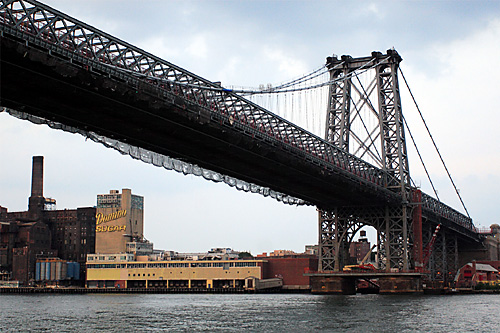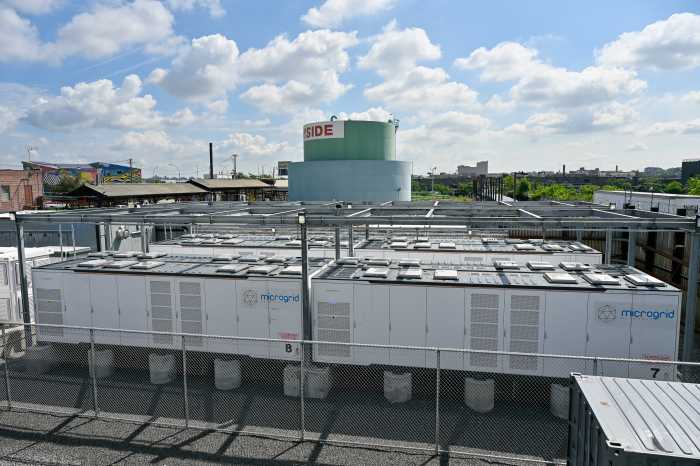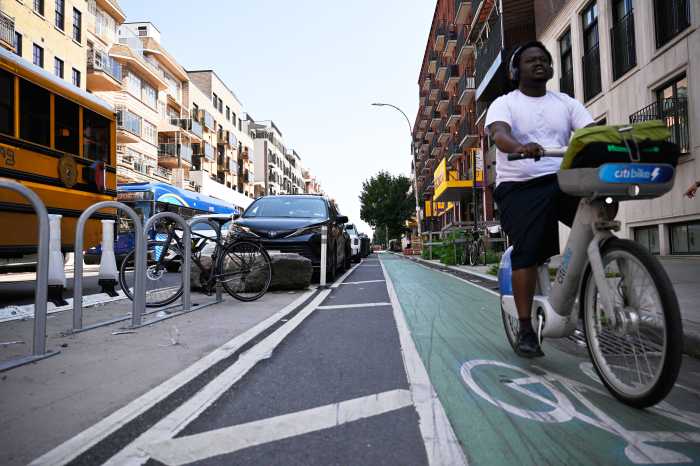The developer behind a plan to build apartments at the former Domino Sugar factory spent at least $100,000 courting Williamsburg community groups that later supported controversial plans to allow residential construction at the industrial site, The Brooklyn Paper has learned.
Community Preservation Corporation Resources — which is fighting to avoid foreclosing on the massive waterfront plot where it hopes to build 2,200 apartments and retail space — doled out donations of between $9,000 and $30,000 to organizations that subsequently backed the Domino project from February 2008 to December 2009, months before its campaign to rezone the site, court filings reveal.
The currently cash-strapped developer says the donations, which it calls “public reputation” money, simply prove that it is invested in the neighborhood. But attorney and civic watchdog Norman Siegel said the donations suggest an instance of quid pro quo.
“If the developer was giving community groups money five or 10 years before their mission, that would be one thing, but if the developer is giving money for the first and perhaps the last time, it raises the question whether the donor is buying recipients support and it raises questions about the community groups themselves,” said Siegel.
The money went to groups including Southside United Housing, a Williamsburg housing developer; Catholic Charities, a Diocese-affiliated social services organization; El Puente, a Williamsburg youth and activism institution; Churches United, a defunct religious social services outfit; and Keren Ezer, an Orthodox nonprofit. The developers also donated money to the Brooklyn Philharmonic, an orchestra based in DUMBO.
Each group collected a $10,000 check except Catholic Charities, which received $9,000, and Churches United, which brought in $30,000.
After the organizations received the checks, members of Southside United, Catholic Charities, El Puente, and Churches United attended several contentious public hearings on the Domino plan, showing their support for a project that would rezone the 11-acre Kent Avenue site and bring 660 units of below-market-rate housing to the closed plant.
Leaders of the groups testified before Community Board 1, Borough President Markowitz, planning commissioners, and City Council, and voiced their approval of the mega-project to the press. The Brooklyn Philharmonic honored the developer’s former CEO at a gala.
Churches United for Fair Housing director Rob Solano, who was once a member of Churches United but now runs a separate organization, said it’s common for developers to give donations to community groups in the neighborhoods where they plan to build.
His new group received $20,000 from Community Preservation Corporation Resources for its end-of-the-year awards dinners in 2010 and 2011, which honored an employee at the development company and the builder’s former CEO and Domino plan mastermind Michael Lappin.
“Mike was part of making this project happen, so we honored Mike,” said Solano. “It had nothing to do with finances. We supported a project but we had issues with the project and those issues were changed.”
And El Puente director Luis Garden Acosta, whose group received $10,000 for its Three Kings Day celebration in 2009, said his organization supported the Domino project several years before Community Preservation Corporation Resources made its contribution.
“We had declared our decision before they gave us any money, so I don’t think anyone could accuse us of quid pro quo,” said El Puente director Luis Garden Acosta. “We would never do anything based on money.”
A spokesman for Community Preservation Corporation Resources — which bought the Kent Avenue factory with developer Isaac Katan for $55.8 million eight years ago — also denied any wrongdoing, saying the donations show the developer backs “community-building efforts of our neighborhood non-profit organizations.”
Details of the donations were included as evidence in a lawsuit filed by Katan against Community Preservation Corporation Resources this month alleging fraud, breach of contract, and mismanagement of the property — due in part to its community spending.
The lawsuit comes as the future of the Domino project, once expected to be worth $1.2 billion when completed, has fallen into jeopardy.
Real estate insiders say the site is up for sale, but the developer claims it is merely seeking additional financing from outside investors so it can begin construction later this year.
Reach reporter Aaron Short at ashort@cnglocal.com or by calling (718) 260-2547.


























